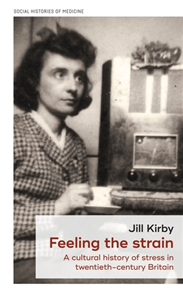A Guide for Those Affected and Their Relatives
In today’s work environment, which is dominated by high pressure, many professionals are experiencing chronic stress, some even "burn out". This guide provides information about the connection between occupational stress and burnout. It presents scientifically sound and proven strategies for counteracting chronic stress.
The model of the “gratification crisis”, which states that an imbalance between professional engagement and the obtained gratifications, e.g. salary and appreciation, leads to persistent stress and an increased risk of physical and mental illness, is the focus of this guide. Based on case studies and concrete instructions, readers are supported in reviewing their own situation.
The guide goes on to present coping strategies, e.g. how important decisions can be made in high stress situations, how to avoid vague assessments, how to strengthen the ability to distance oneself after work, and how to improve quality of leisure time. This title can be used as a stand-alone guide as well as supplemental material to coaching or therapy.
Target Group: psychotherapists, specialists for psychiatry and psychotherapy, specialists for psychosomatic medicine and psychotherapy, clinical and health psychologists, occupational and organizational psychologist, rehabilitation psychologist, coaches, students and teachers of psychology, supervisors





























